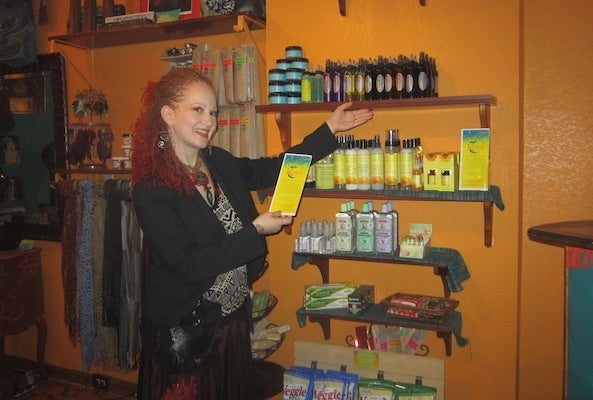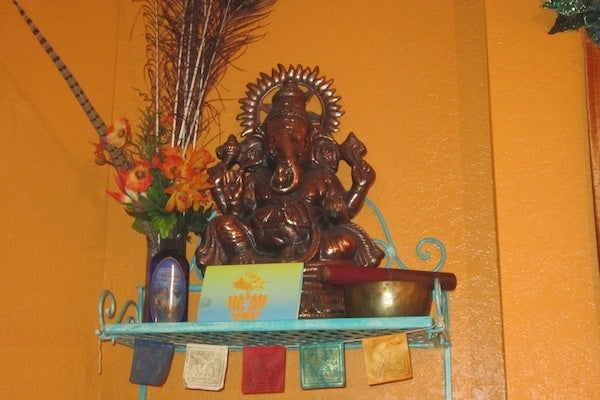Locs, fashion and natural style at Rasa Salon
This is not a beauty shop story. This is not even a hair story, really. This is a story about a paradigm shift, a radical change in the accepted way of thinking about something. I’m letting you know up front, because paradigm shifts in progress are tricky things to catch. They don’t happen so much as evolve, and they often evolve at a snail’s pace.
At the center of this particular evolution is Amber Muhammad, stylist and owner of Rasa Salon, which has been serving clients in Germantown since 2008. Muhammad is not necessarily the kind of person you might expect to own a salon specializing in styling locs (dreadlocks). She’s white.
To Muhammad, being a loctician is not about race. For her it’s much more simple. She believes that every stylist should be trained in all textures of hair, regardless of their own hair texture or race. This isn’t the case with most salons which tend to cater to a specific hair texture and by extension to a specific ethnicity.
She understands why people might not be comfortable choosing a stylist with hair very different from their own. “You look at the stylists and you say ‘which stylist looks just like me or which stylist looks like the way I would want to look?’ Hair care is intimate. You’re working on someone’s head. Your hair and your head is a very intimate part of your body. A lot of [clients] are not comfortable having an intimate experience with someone that doesn’t look just like them.”
Muhammad points out that stylists are often equally uncomfortable working with a hair texture that’s different from their own. Her goal is to get both clients and stylists to think outside of the box when it comes to hair care. “I feel like it’s my responsibility as an artist and as a hairstylist to learn about the different materials and textures of hair that I’m working with. I look at it more from an artist’s perspective than a cultural perspective.”
Wearable art
Muhammad considers hair styling an art. Her artistic interest in hair was inspired by a childhood friend whose family came from Trinidad. Her friend often returned from visits to the island wearing her hair in elaborate braided styles. The asthetic of those styles inform Muhammad’s understanding of natural hair as a vehicle for wearable art.
The most popular wearable art at Rasa is created through a palm rolling technique designed to shape and train hair into coiled locs. Traditionally, locs are associated with tightly curled hair textures and loc growth is a process that takes time to develop. Muhammad has invented a technique however, that creates mature looking locs for straight textured hair in a matter of hours.
Cultural critics
Muhammad has her critics, though. There are those who assume that because of her race she’s somehow exploiting hair traditions that have their roots in African cultures. “A lot of people see me as a threat—that’s the best way I can put it. They feel as though their cultural identity is being stolen or exploited in a way. So much has been taken from African-Americans in general, so much, and hair, like I said, is an intimate thing for people, and so a lot of people are saying ‘oh no, not another thing taken from us.’ That’s not where I’m coming from at all.”
Muhammad wants to educate people “on not connecting hair texture with nationality or race.” She wants to fundamentally change the way we think about hair to open up a space for artistry and craft. This doesn’t mean however, that she’s dismissive of this country’s cultural history and how its standard of beauty has worked against specific racial groups. “We are really brainwashed, and as a culture are brainwashed into a lot of self-hatred, especially African-American women.”
Embracing the journey
Muhammad encourages everyone who walks into her salon to take pride in themselves and in their hair. She hopes that salons like hers, which cater to clients with all different hair textures, will become the new standard.
“We’re helping people on their journey to loving themselves and loving their hair—their natural hair. It’s beautiful to see that journey take place.”
WHYY is your source for fact-based, in-depth journalism and information. As a nonprofit organization, we rely on financial support from readers like you. Please give today.









